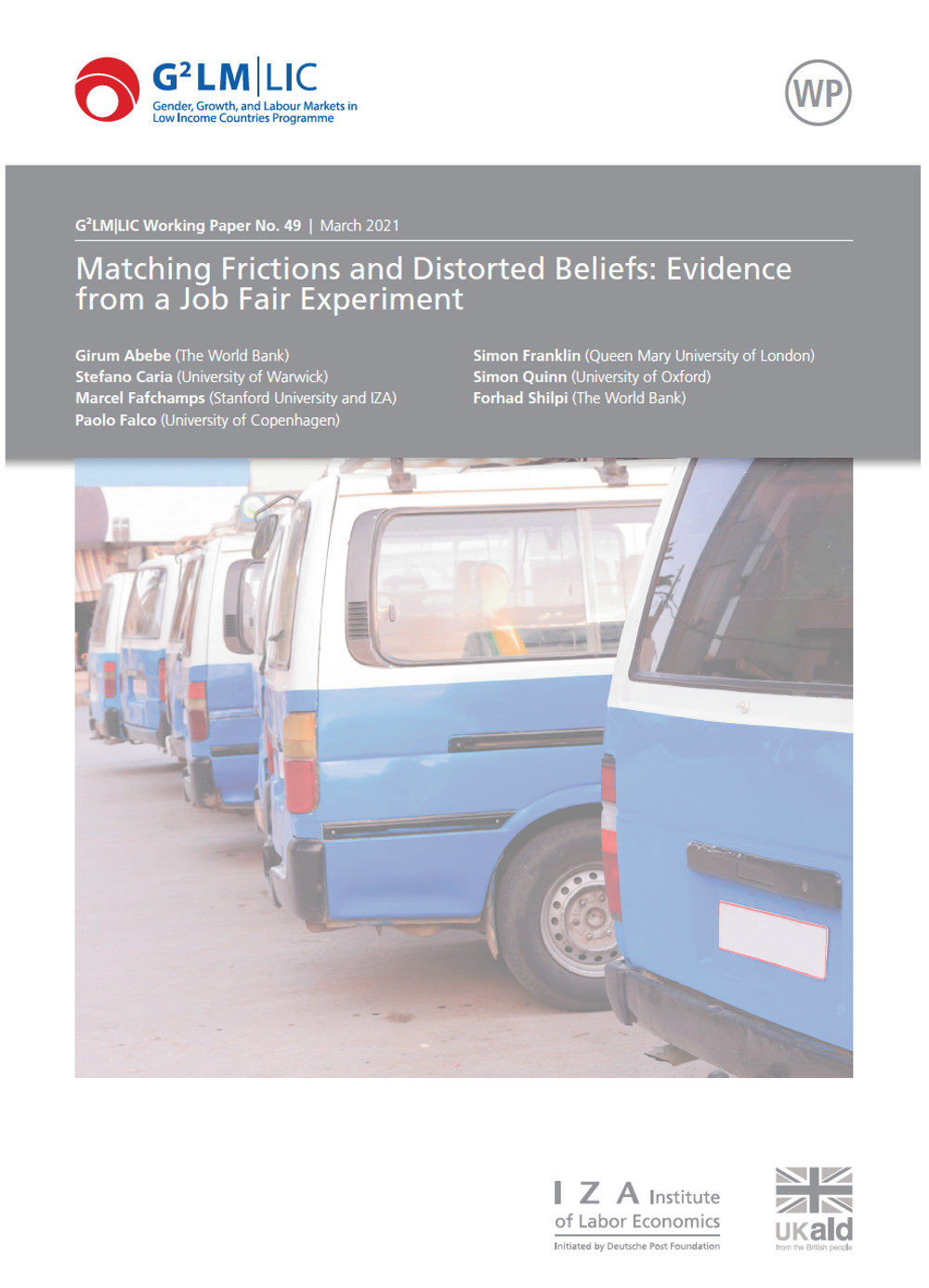We evaluate the impacts of a job fair intervention that decreases meeting costs between large firms and young jobseekers, randomizing fair attendance among workers and among firms. The fairs generate a rich set of interactions between workers and firms, but very few hires: one for every twelve firms that attended. On the other hand, the fairs motivate both firms and workers to invest more in job search, which leads to better employment outcomes for some jobseekers. Using data from a unique two-sided survey with a new sample of young workers and firms alongside data from the fairs, we show that these impacts are driven by the fact that both firms and workers have inaccurate beliefs about fundamental aspects of the labor market – in particular, the distribution of skills and the competitiveness of specific occupations – which are corrected at the job fairs. Overall, our evidence suggests that, beyond directly slowing down efficient matching in the labour market, search frictions can impose a second, understudied cost: they entrench inaccurate beliefs, further distorting search strategies and the allocation of talent.

Matching Frictions and Distorted Beliefs: Evidence from a Job Fair Experiment
- Girum Abebe
- Stefano Caria
- Marcel Fafchamps
- Paolo Falco
- Simon Quinn
- Simon Franklin
- Forhad Shilpi